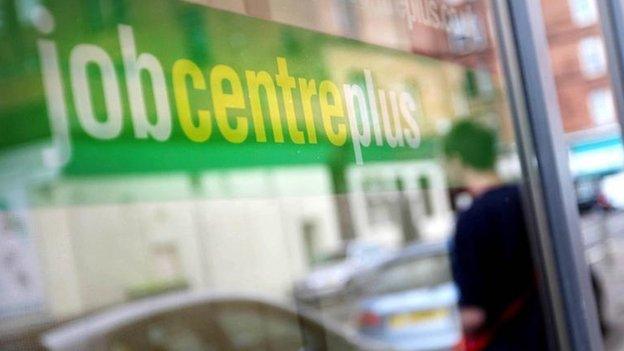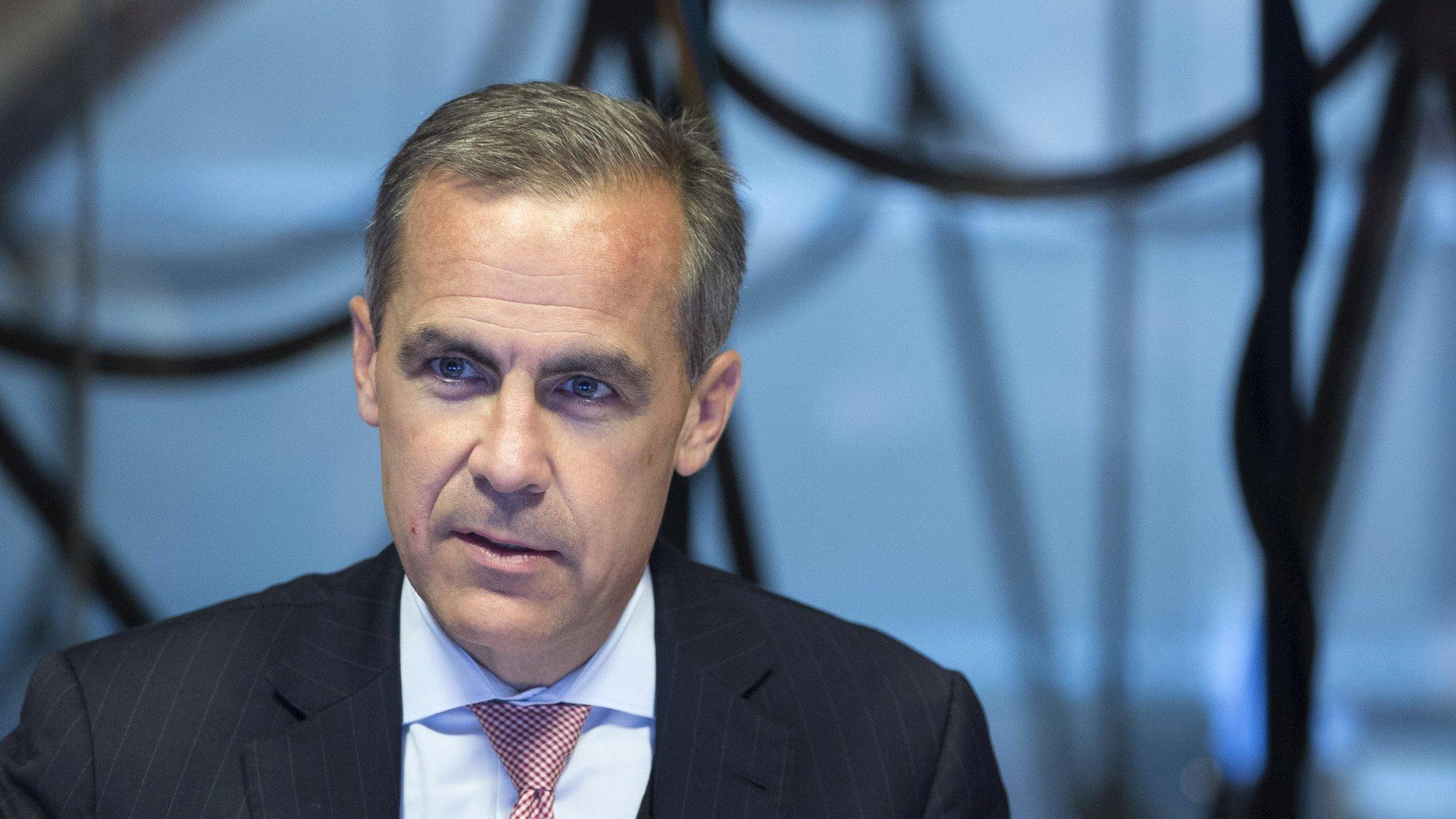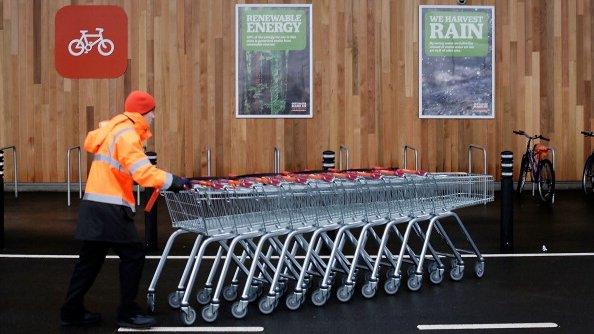UK unemployment falls by 57,000 to 2.51 million
- Published
Employment Minister Mark Hoban: "We cannot be complacent, there are still some big challenges around tackling long-term unemployment".
UK unemployment fell by 57,000 to 2.51 million in the three months to May, the Office for National Statistics said.
Youth unemployment fell by 20,000, but the number of long-term jobless hit a 17-year high.
The number of Jobseeker's Allowance claimants in June fell by 21,200 to 1.48 million, the first fall below 1.5 million for nearly three years.
Ministers said it showed that recovery was taking hold, but critics said the human costs were still too high.
Separately, the ONS reported that average earnings increased by 1.7% in the year to May, up by 0.2% on the previous month, giving an average weekly wage of £476.
The unemployment rate was 7.8%, the ONS data showed., external The number of people in employment rose by 16,000 to a total of 29.7 million.
However, 915,000 people have been out of work for more than a year, the ONS figures showed, an increase of 32,000 and the highest total since 1996.
Just over 460,000 people have been jobless for more than two years, the highest figure since 1997.
The number of people classed as economically inactive also increased in the latest quarter, up by 87,000 to 9.04 million.
'Area of strength'
Unemployment is now 72,000 lower than a year ago, which Employment Minister Mark Hoban said was "encouraging".
"The fall in the number of people claiming out-of-work benefits, together with the news that there are currently over half a million vacancies available in the UK economy, show that there are opportunities out there for those who are prepared to work hard, and who aspire to get on in life," he said.
David Kern, chief economist at the British Chambers of Commerce, said: "With employment rising and unemployment falling, the labour market remains an area of strength for the UK economy.
Shadow minister Liam Byrne: "We're now creating jobs so slowly that pay is getting absolutely hammered"
"There are some areas of concern, however. Long-term unemployment is up, and youth unemployment, while edging down, is still too high. But at a time when the government's austerity plan remains in force and the public sector is shrinking, it is reassuring that the private sector is willing and able to create jobs."
Labour's shadow work and pensions secretary, Liam Byrne, said: "Any shred of progress on jobs is welcome but today's figures show that economic recovery is so weak that pay is plummeting.
"We are now creating jobs ten times more slowly than this time last year and there are more part-timers looking for full time work than ever before."
The ONS's regional breakdown saw wide differences. London saw a 16,000 fall in unemployment to 368,000, and the South East saw a 20,000 fall to 286,000.
In the South West, unemployment fell 11,000 to 156,000, giving it the UK's lowest jobless rate, at 5.8%.
There was an 18,000 fall to 270,000 in the North West.
In Scotland, unemployment rose 8,000 to 205,000, and in the North East, which has the UK's highest jobless rate, at 10.4%, unemployment went up 4,000 to 134,000.
Dave Prentis, general secretary of the Unison union, said the fall in the headline jobless figure would be little comfort to those people still struggling with unemployment.
"Small relief in the unemployment figures will be no comfort to those struggling with the misery of long-term unemployment.
"Every job lost is a personal tragedy and the government has to do more to tackle the persistent jobs crisis."
- Published17 July 2013

- Published12 June 2013

- Published17 July 2013

- Published15 July 2013

- Published12 July 2013
